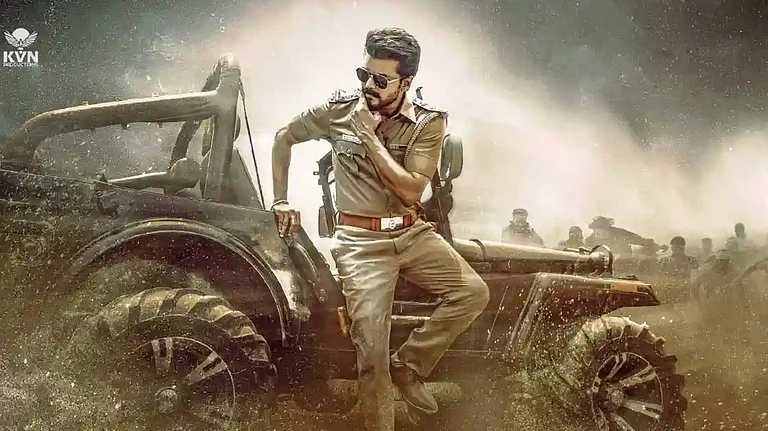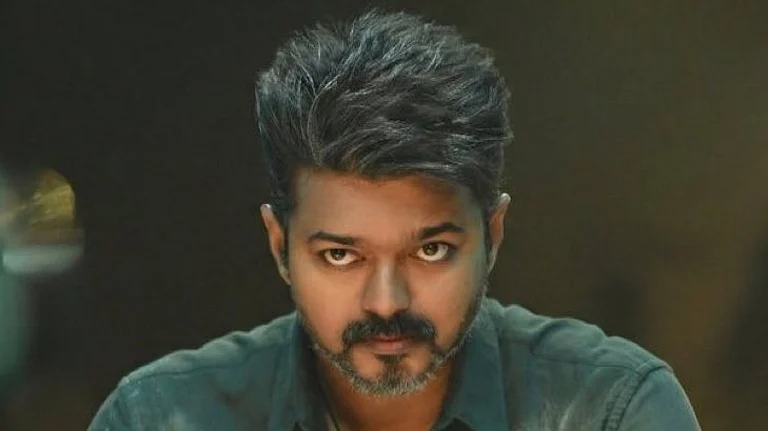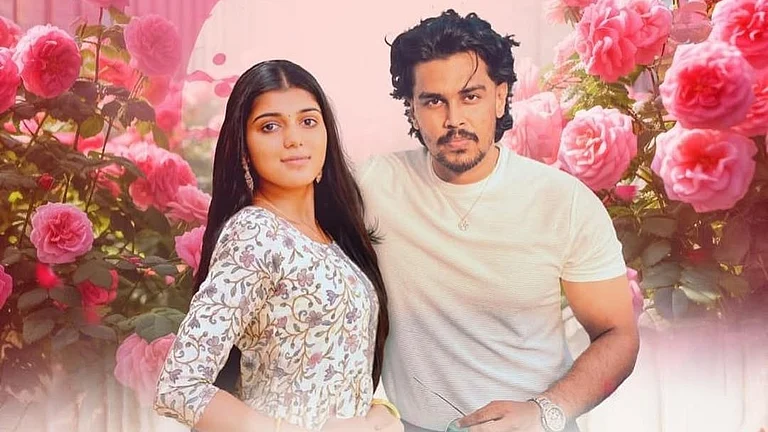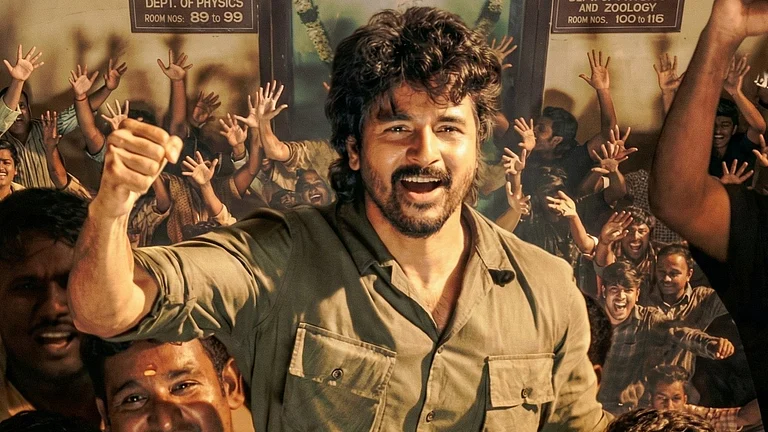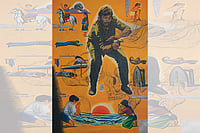On August 25, 2024, life was good for Kangana Ranaut, as it had been for the last decade (barring the recent slap). She had won several awards, directed and produced films, gotten Y+ security cover, become the Member of Parliament (MP), continued to rain fury on social media, and on and on. The next 10 days promised acche din as well: Her directorial drama, Emergency, where she plays Indira Gandhi, was about to release on September 6. A movie uniting her artistic and political preoccupations: essaying a complex role and attacking the Congress party.
She shared a video on X the next day, suggesting the farmers’ protests could have caused a “Bangladesh-like situation” in the country, had the “top leadership” not been “strong”. The bodies “were hanging” during the protests, she said, and “rapes were taking place”. She identified the villains, too: “Foreign forces, such as China and America, colluding with the insiders”. She had insulted the farmers several times before, but this time, her actions had consequences. “Kangana Ranaut is neither permitted nor authorised to make statements on the party’s policy,” the BJP said. “She has been directed not to make such statements in future.”
And then, Ranaut went from commenting on a story to becoming a story. Four days later, she posted another video on X, saying the Central Board of Film Certification (CBFC)—or the Censor Board—hadn’t certified Emergency. “It was initially cleared,” she added, “but the certification has been put on hold as the Censor Board is receiving death threats.”
This case, though, shares no similarity with the censorship controversies of the past (such as Bandit Queen, Paanch, Udta Punjab, and many more) where the CBFC imposed draconian cuts, and the miffed directors appealed the decisions. Such a process usually comprised three tiers: A filmmaker first showed the movie to the Examining Committee. If dissatisfied with the cuts, she could approach the Revising Committee and, if that didn’t solve the problem, then the Film Certification Appellate Tribunal (FCAT, abolished in 2021)—and, finally, the courts.
But, according to Ranaut, the CBFC didn’t object to the film but recognised the varied groups’ complaints. Emergency has indeed courted several controversies—some even before her incendiary comments. On August 21, the Akal Takht, the Sikhs’ highest temporal seat, and the Shiromani Gurdwara Parbandhak Committee (SGPC) demanded a ban on the film for trying to “character assassinate” Sikhs. The SGPC chief, Harjinder Singh Dhami, called a press conference, seeking an FIR against Ranaut. The movie, he added, could “cause anger and resentment in the Sikh community”.
A week later, the Shiromani Akali Dal (or, well, SAD) issued a legal notice to the CBFC, demanding that the Censor Board revoke its certificate. It said Emergency distorted historical events and figures, especially Sikhs, “inciting communal tensions” and “spreading misinformation”. Delhi Sikh Gurdwara Management Committee, too, sent a similar letter to the censor board. Around the same time, Telangana Sikh Society’s 18-member delegation met the Adviser to the Telangana Government (SC, ST, OBC & Minorities), and raised concerns about the movie. On August 29, the Chief Minister, A Revanth Reddy, said his government would consider banning the film.
And it went on: The month changed, but the controversy didn’t. A few days later, the Jabalpur Sikh Sangat and the Shri Guru Singh Sabha filed a Public Interest Litigation (PIL) in the Madhya Pradesh High Court, wanting the CBFC to revoke its censor certificate and demanding an unconditional apology from Ranaut.
The protesting parties have, of course, not seen the film. Their objections arise from a three-minute trailer. It’s long enough to reveal the movie’s story and intentions. Devoid of any nuance, and following the rulebook of recent Bollywood propaganda films, it vilifies Gandhi (and the Congress) and extols Atal Bihari Vajpayee (and the BJP). It’s in the last 25 seconds, though, that Emergency twists the dagger, killing a new villain. Here, the separatist leader Jarnail Singh Bhindranwale says, “You want votes, we want Khalistan.” Several Sikh groups have protested the depiction, saying the leader made no such demand. In another scene, some Sikh men gun down unarmed civilians.
Ranaut, who suffers from foot-in-mouth syndrome, has found out that the shoe is on the other foot. Because, this time, she isn’t supporting but opposing the establishment. It’s not as if such controversies haven’t happened before: The Kashmir Files (2022) and The Kerala Story (2023) also saw huge protests but they passed the Censor Board certifications without a peep, enjoyed tax-free status, and earned shitloads. To deny the censor certificate to the documentary En Dinon Muzaffarnagar (2014), the Home Ministry sent an “input to” the CBFC in March 2015, via a letter, calling the movie “highly provocative” that’d “instigate communal disharmony”. But for a change, Ranaut will get no such help. She’s truly on the other side—all alone—the proud nationalist has gotten the ‘anti-national’ treatment.







